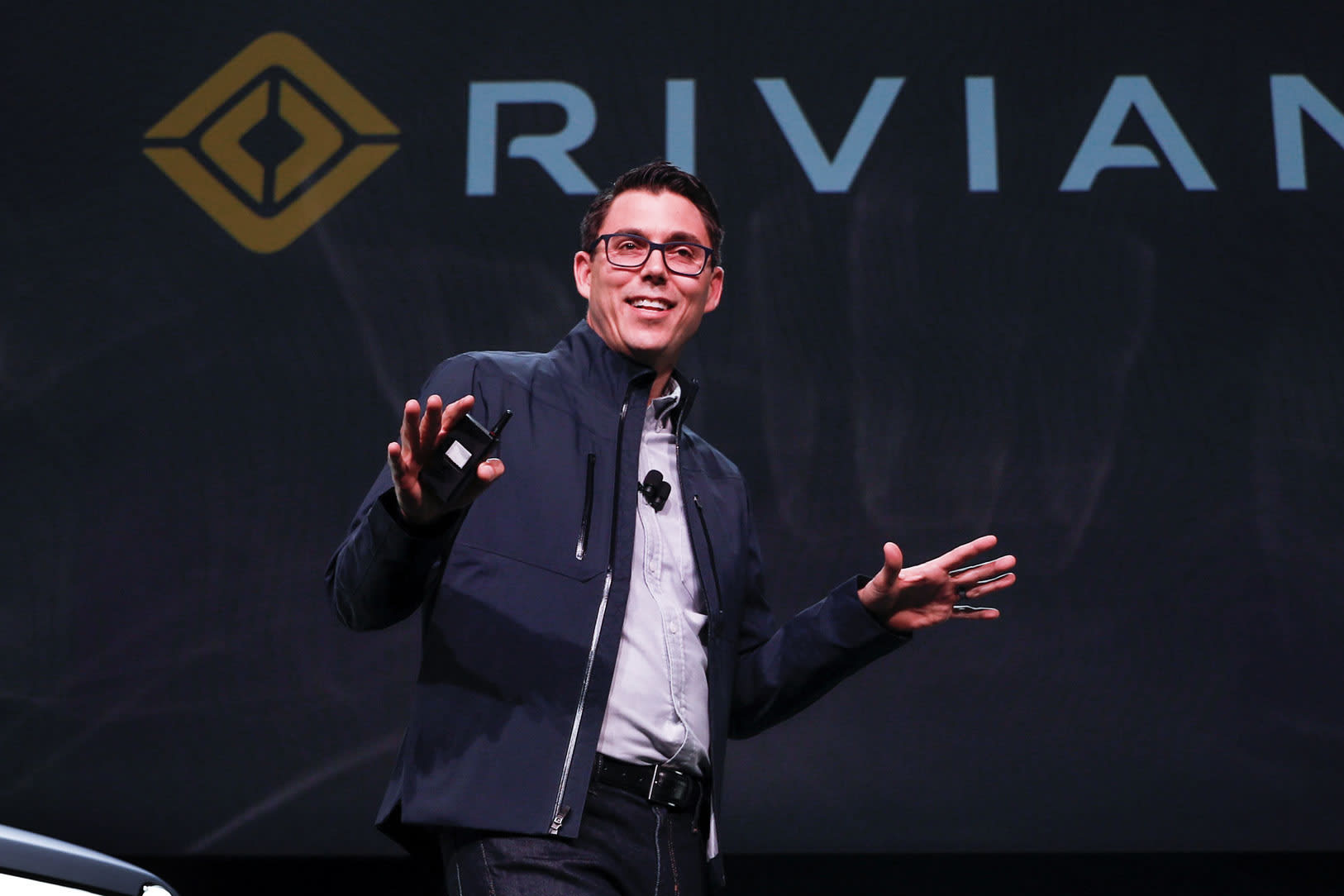Electric vehicle maker Rivian plans to use new types of battery cells in its electric trucks, delivery vans and SUVs the company said Thursday in a 2021 fourth-quarter shareholder letter. These include cells made with lithium iron phosphate (LFP) chemistry for its standard-level vehicles, and high-nickel chemistry for its longer-range vehicles.
LFP battery cells do not require any nickel or cobalt, which can be expensive or hard to obtain. They are also generally considered more stable, but less energy-dense, than nickel cobalt aluminum oxide cells, which had been used by Tesla and other automakers in electric vehicles. While they can be fully discharged and charged without as much damage to the cell over time, LFP batteries do not generally deliver the same range as NCA and other types.
High-nickel chemistry batteries, meanwhile, are more energy dense, can be charged more quickly and deliver more miles per charge for a pack of the same or less weight made with these cells.
Rivian founder and CEO RJ Scaringe explained on an earnings call after hours on Thursday that the company and its suppliers are facing a variety of constraints due to the Covid pandemic, Russia’s invasion of Ukraine and their impacts on global supply chains. He said Rivian was “looking at one of the most challenging supply chain environments the automotive industry had ever seen.”
Scaringe said that the first LFP cell is being sourced through a partner, which he did not name, but said that the company is “also developing in-house battery chemistries and battery production capabilities.”
Rivian Commercial Vehicles, such as the EDV-700 it developed for Amazon, should have “similar daily range capabilities with LFP chemistry, and this chemistry provides meaningful cost savings for us,” Rivian wrote in its shareholder letter.
In its consumer electric vehicles, including the R1T pickup and R1S SUV, Rivian expects an estimated range of over 260 miles with the LFP-based standard battery pack.
Tesla announced plans to switch to LFP battery cells for its standard battery packs in October 2021, and both companies are following in the footsteps of Chinese electric vehicle and battery manufacturers. The technology has been generally promoted in China, and as battery researchers Roskill have noted, around 95% of LFP cathode manufacturing is based in China. Eliminating cobalt means reducing reliance on suppliers where forced labor is still a concern. Cobalt extraction is still largely concentrated in the Democratic Republic of Congo, where it is linked to human rights abuses and child labor.
Rivian is aiming to produce 25,000 battery electric vehicles in 2022 and aims to deliver its 55,000th vehicle within 2023.
The company’s shares dropped more than 12% after hours on Thursday after the company missed Wall Street’s fourth-quarter earnings expectations and forecast a modest increase in vehicle production for 2022.
